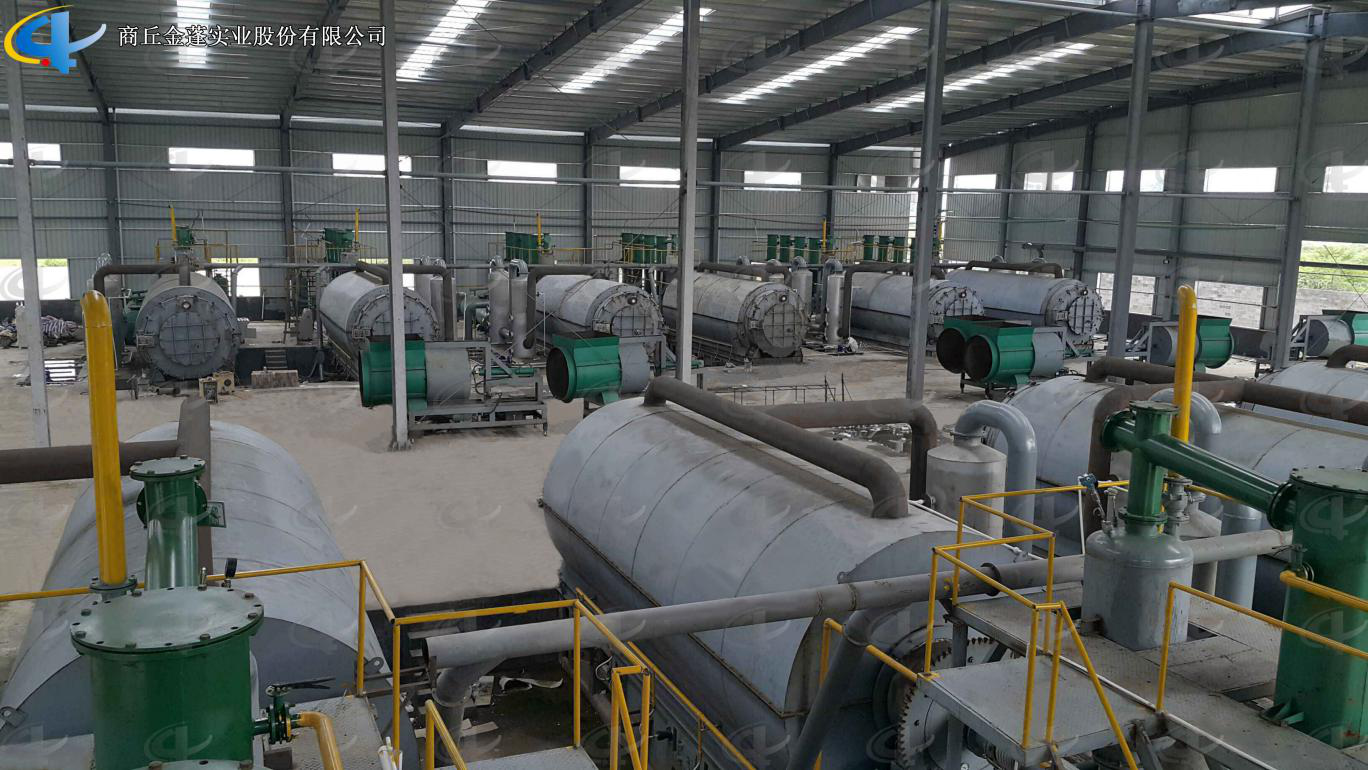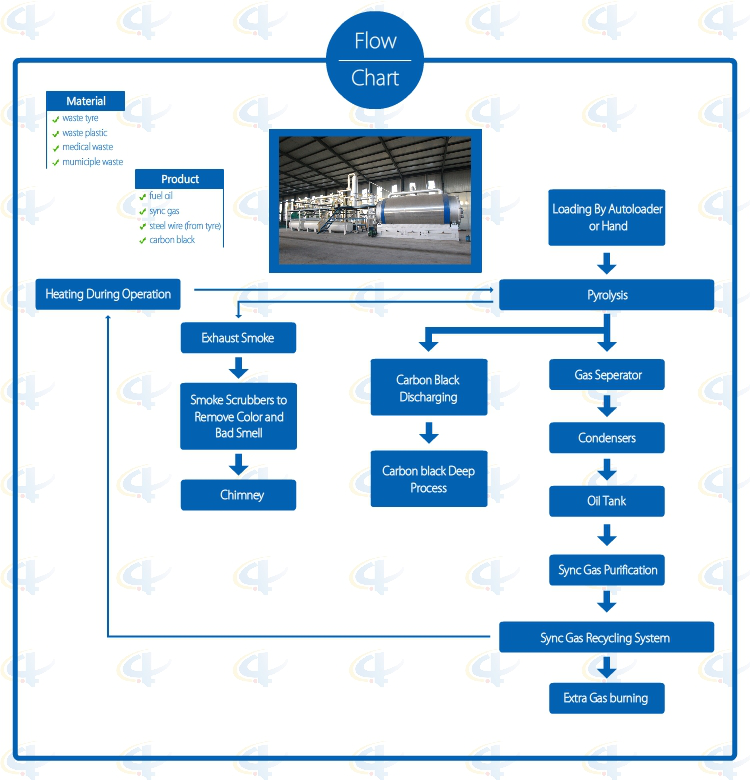Intergrated Design Batch Waste Plastic Pyrolysis Plant
Pyrolysis Plant is used for recycling waste tire, waste plastic, waste rubber to fuel oil. According to the actual situation in every country and district, we developed different models of Batch Pyrolysis Plants for waste tires, rubber and plastic with daily capacity 5 -10 tons.

Flowchat of Batch Waste Tyre Pyrolysis Plant

Advantages of Batch Waste Tyre Pyrolysis Plant
1. Full open door design: Speedy loading in and steel pulling out; Easily cooling down after one batch finished, saving time; No leaking with special high temperature flexible graphite packing.
2. Unique Craft Condensers: High condensing efficiency with more oil output. Good quality oil, longer lifetime, and easy to clean.
3. National Patent Unique Smoke Scrubbers: More efficient removal of the acid gas and dust of the smoke by neutralization, purification and absorption, environmental friendly without pollution.
4. National Patent Carbon Black Discharging System: Speedy fully enclosed Auto-discharging under high temperature, avoiding carbon black pollution, saving time.
5. Automatic Submerged welding technology, ultrasonic nondestructive testing, both manual and the automatic safety devices.
6. Sync Gas Recycling System: Fully burned after recycling and utilization, saving fuel and preventing pollution.
7. Direct Heating System: Enlarging heating square to lengthen the lifespan of the reactor and easy to control the temperature.
8. National Patent, unique heat insulation shell; high efficiency temperature keeping, excellent energy-saving effect.
Technical Parameter of Batch Waste Tyre Pyrolysis Plant
|
NO. |
ITEM |
PROJECT |
|
|
1 |
Equipment Model |
XY-7 |
XY-8 |
|
2 |
Door Model |
Full Open Door |
Full Open Door |
|
3 |
Suitable Raw Materials |
Rubber/Plastic Products |
Rubber/Plastic Products |
|
4 |
Structure |
Horizontal Type Revolves |
Horizontal Type Revolves |
|
5 |
Reactor Size |
Φ2200*6000mm Φ2600*6600mm |
Φ2200*6000mm Φ2600*6600mm |
|
6 |
Capacity for One Batch |
5-6Mt; 8-10Mt |
5-6Mt; 8-10Mt |
|
7 |
Oil Yield of Tires |
40%-45% |
40%-45% |
|
8 |
Work Pressure |
Normal Pressure |
Normal Pressure |
|
9 |
Reactor Rotation Speed |
0.4R/M |
0.4R/M |
|
10 |
Fuels Choice |
Coal, Wood |
Coal, Wood, Gas, Oil |
|
11 |
Power |
18KW/H |
18-25KW/H |
|
12 |
Cooling Method |
Water Cycling |
Water Cycling |
|
13 |
Type of Drive |
External Annular Gear |
External Annular Gear |
|
14 |
Heating Method |
Direct |
Direct |
|
15 |
Type of Installation |
With Foundation |
With Foundation/Integrated Base |
|
16 |
Noise dB(A) |
≦85 |
≦85 |
|
17 |
Operation Mode |
Intermittent Operation |
Intermittent Operation |
|
18 |
Total Weight(MT) |
25-40 |
25-40 |
|
19 |
Installation Space Required |
30m*10m |
30m*10m |
|
20 |
Manpower |
3~4/batch |
3~4/batch |
|
21 |
Shipment |
Ф2200×6000=1*40HC+1*40FR Ф2600×6600=2*40HC+1*40FR |
Ф2200×6000=1*40HC+1*40FR Ф2600×6600=2*40HC+1*40FR |
Integrated Design Batch Waste Plastic Pyrolysis Plant
Intergrated Design Batch Waste Plastic Pyrolysis Plant,Waste Plastic Pyrolysis Plant,Rubber Pyrolysis Recycling Plant
Shangqiu Jinpeng Industrial Co., Ltd. , https://www.recyclings.nl
